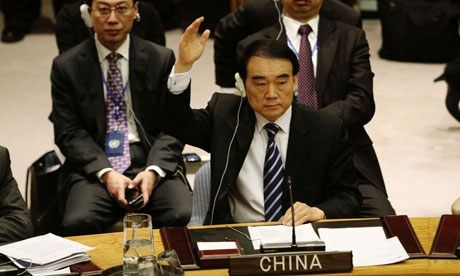A Belated Thought on Wikileaks
by Graham Dumas (J.D. Candidate 2011)
I am a bit late in writing about the Wikileaks issue, but I would like to propose here a slightly different way of viewing the question through the lens of systems engineering. For a number of reasons, Wikileaks has presented to members of the military a simplified and seemingly less painful way to report violations of IHL, leading to a breakdown in, or rather an excursion from, the process the U.S. Military has been using to report, identify, prosecute, and ultimately prevent violations of military law and the law of armed conflict. To remedy this problem, the military should investigate both the demand and supply sides of the information pipeline, simplify the reporting process, and initiate a campaign to educate servicemen of the internal reporting channels available to them, the need to prevent extraneous leaks to the public, and the penalties for releasing classified information. More after the jump.
As described by Professor Laura Dickinson in 42 NYU J. Int’l L. & Polit 355 (2010), the JAG corps within the U.S. military functions largely as a compliance unit, fostering accountability and an understanding of IHL through the use of an independent chain of command and the authority to impose sanctions on violators. Most important for this analysis is the true independence of the JAG corps from the rest of the military chain of command, a factor that has the potential to allow servicemen to report IHL violations without confronting directly their superior officers.
Clearly, however, with Wikileaks, something has gone astray. Information on IHL violations wants to get from point A, the serviceman with the knowledge in question, to point B, an officer or other superior with the ability to address the issue, with as little resistance as possible. In the case of the recent Wikileaks disclosures, it appears that the flow of information has become restricted to the point where the pipeline between points A and B has burst, leading to a discharge of information into the public sphere. Of the many possible causes of this overload, four stand out in my mind: that the JAG corps is not truly independent enough to afford whistleblowers adequate cover from reprisals by superiors and peers; that there are simply not enough JAGs and related personnel to deal with the flow of information in a satisfactory manner; that the sanctions imposed by the Uniform Code of Military Justice are not sufficient to deter breaches of confidentiality by whistleblowers armed with the new, and seemingly anonymous, tool of Wikileaks; or that Wikileaks and similar services are simply so flashy or sensational that servicemen may turn to them first without going through the JAG corps.
Not being acquainted with the details of the UCMJ or the JAG corps, I can’t really comment on the first and third possibilities, although from the coverage of the controversy it seems that military law affords a range of stiff penalties for violations such as the recent leaks; likewise, the JAG corps has reportedly been much improved since the Vietnam war, and in theory represents a truly independent channel for compliance. The second possibility, the lack of sufficient JAGs to deal with the number of violations, is also beyond my expertise, although it could be an interesting focal point for further study–especially as it may reveal that an increase in awareness of IHL issues on the part of U.S. military personnel could actually be leading to a glut of reported incidents.
The fourth possibility is interesting, as it offers a very different approach and appears to indicate that something akin to a campaign of public service announcements within the military–a sort of “start snitching” policy, if you will. Again, I don’t know enough about military training or the interaction between the JAG corps and the average servicemember to judge whether the latter are being sufficiently educated on IHL and how to report violations, but it seems that something must be done within the military to overcome the sensationalism assiociated with Wikileaks.
Think of it as a Loose Lips campaign for the digital era. The only difference is that the results of someone talking now are not nearly as apparent, or immediately deadly, to the average serviceman as they were 60 years ago. Thus, whatever approach the military develops will have to include on the “demand side” a detailed explanation of why it is generally beneficial to the United States that servicemembers keep their whistleblowing internal, such as a discussion of the injury to U.S. foreign policy caused by the public disclosure of IHL violations. On the “supply side,” the military should work to make it as easy and painless as possible for servicemen to blow the whistle on noncompliant peers or superiors, eliminating as many obstacles to this process as possible.



Your article helped me a lot, is there any more related content? Thanks!